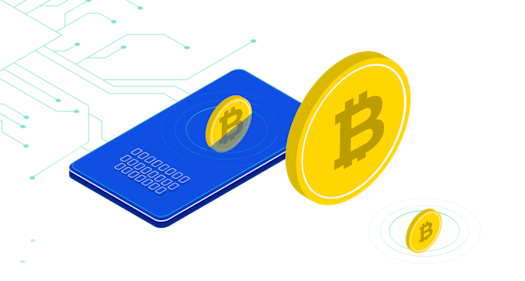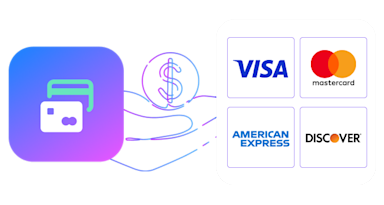In 2010, Laszlo Hanyecz paid 10,000 bitcoins for two pizzas. Today, with one bitcoin selling for over $60k, those same coins are worth over half a billion dollars. Hopefully the delivery guy or gal hung on to those coins!
With this type of revolution in play, we decided to address not only the security, but also the economics and politics of cryptocurrency, when we speak at RSA 2021 on Displacing the Dollar: Is Crypto Robust Enough to be the New Reserve Currency?.
What is Money?
Why is a simple string of digital bits so valuable? Good question! In the age of barter, humans traded items of intrinsic value, such as shells and salt, which demonstrated a “proof of work” such as discovery or extraction. Some items were clearly more valuable than others: gold possesses a singular array of amazing traits: rarity, beauty, and strength, while simultaneously not being poisonous, radioactive, or corrosive.
Over time, governments saw value (and profit) in standardizing the size, shape, and weight of what we now call money. China produced the world’s first metal coins over 3,000 years ago and the first paper bills over 1,000 years ago. Good money is similar to a valuable natural resource: it is scarce, durable, portable, and can be authenticated. Some of the world’s oldest coins are still in existence today!
There are three essential elements of money:
- Medium of Exchange: an intermediary token that can be traded for goods and services.
- Unit of Account: a stable measure of costs, prices, profits, and performance.
- Store of Value: a durable asset with saved purchasing power.
Money is a human construct based on economic consensus and social convention. However, governments have the unique authority to declare something “legal tender,” which means that courts of law are required to recognize it as a satisfactory payment for a debt. If cryptocurrency hopes to replace traditional money, it must manifest all of these traits.
War and Peace
Today’s international political and economic system was forged in the ashes of World War II. In times of crisis, human civilization is fragile. As war broke out in 1939, England, France, and Poland secretly shipped millions of pounds of gold to North America and Africa in spectacular maneuvers such as Operation Fish.
When the war was over, the Allied Powers were desperate for economic stability and created the “Bretton Woods” system, in which many countries pegged their exchange rates to the US dollar, and in turn the dollar was pegged to the price of gold. Thus, due to its political clout, military power, and the world’s largest national gold reserves, the US dollar became the world’s second or “reserve currency.”
To a large degree, the world benefited from this stability, especially market-backed democracies. But some nations were unhappy with the numerous advantages the system appeared to give the US, including the ability to monetize debt and run balance-of-payment deficits. In the 1960s, France demanded the return of its gold. In 2021, Russia is buying record amounts of gold in an effort to chip away at its dependency on the dollar. In truth, political and military commitments from the New Deal to the Vietnam War overstretched US capacity, and in 1971 President Nixon ended the dollar’s convertibility to gold and declared the dollar a “fiat” currency that was no longer backed by a supernova — but merely by trust in Uncle Sam.
The Cryptocurrency Revolution
Cryptocurrency did not appear out of thin air. Today, even dollar, ruble, and yuan transactions are primarily digital. At the coffee shop, we most often do not pay in minted coins or paper dollars. We simply move bits around in databases: on a digital ledger, my bank balance drops $5, and the merchant’s goes up $5.
The road to bitcoin was paved with myriad programmable transactions. The 1970s brought us TCP/IP, the 1980s Ethernet, the 1990s HTTP and SSL/TLS. In 2008, when bitcoin and blockchain came along, they stood on the shoulders of giants: hash functions for integrity, digital signatures for authentication, append-only time-stamps for immutability, and much more.
Revolutionary ideas like double-entry bookkeeping (i.e. notations on two ledgers, credit and debit) helped bring Europe out of the Dark Ages. In 2008, when Satoshi Nakamoto published his/her/their paper, “Bitcoin: A P2P Electronic Cash System”, the goal was to achieve the same feat not merely for one merchant or vertical, but for the entire world. Nakamoto created a technology that could verifiably move value (of any kind) across a decentralized network, peer-to-peer, with no trusted intermediary.
Cryptocurrency is a digital asset that sits on a blockchain: an online, distributed, auditable database of records (blocks) that are tied together with advanced mathematics and cryptography. The blockchain communication protocol is governed by consensus, with all parties agreeing on the creation, ownership, and transfer of coins. The result is a novel financial network that decreases the “cost of trust” and even claims to solve challenging philosophical puzzles like the Byzantine’s Generals problem.
Benefits & Risks
The potential benefits of cryptocurrency run from each citizen to every government. For both, there is increased opportunity for financial inclusion, ownership, and power. Cryptocurrency promises to lower cost, increase confidentiality, and provide access to a global marketplace. Even seasoned investors are astonished at the potential for return-on-investment. At the political level, blockchain offers a tantalizing capability for electronic government and digital society, with the power to strengthen democracy, human rights, the rule of law, and anti-corruption initiatives. Witness Estonia’s E-residency system, which offers numerous benefits that authoritarian governments would never dream of letting go.
The potential risks of owning cryptocurrency include a steep learning curve and rapid technological evolution. Standards, regulations, insurance, and norms are nascent, so there is a real risk that you will lose all of your money. Infrastructure has been vulnerable, with numerous hacked exchanges. There is growing public concern over its carbon footprint, with Bill Gates leading the way. And ultimately, governments control your Internet access, so they control your access to cryptocurrency. Cybersecurity encompasses many risks, from lost hardware and passwords to hacking, malware, phishing, extortion, and cryptojacking. In fact, if cryptocurrency comes to be associated with criminal, terrorist, and rogue nation use, governments may severely restrict access to it.
Cryptocurrency Security
If you choose to invest in cryptocurrency, you should consider it a high-risk investment and plan accordingly. Your private keys are your digital identity in the cryptocurrency market, and they allow you to trade cryptocurrency online. If your private key is stolen, the thief can take your money or commit fraud in your name. Cryptocurrency wallets store your private keys. A cold (hardware) wallet is best, as they have no direct connection to the Internet. If you use a paper wallet, you should laminate it for long-term storage. For added security, you may want to diversify with multiple wallets. Do not forget to print and save your backup words in a secure location.
Make a plan for physical security, cybersecurity, and human security. For your devices, install anti-virus, keep current with patching, and turn on your firewall. On the network, beware of public Wi-Fi and use a VPN if possible. For yourself, use a good password policy, enable multi-factor authentication (MFA), and do not fall for social engineering, phishing, adware, etc. Information security research is a deep subject; for example, in the world of public key infrastructure (PKI), it is important to create a key pair with the help of a random number. Some wallets have been hacked due to a failure of sound random number generation.
The Future of Cryptocurrency
In the near term, the prospects for cryptocurrency are limited simply because it is so new, and there is still much work to do on technical, security, policy, and legal fronts. Consider only the aspect of time: Visa can process over 50k transactions per second, whereas bitcoin can process less than 10. Therefore, in our RSA presentation, we conclude that the dollar’s status as the world’s reserve currency is safe for the foreseeable future.
Over the horizon, the power of cryptocurrency (and blockchain) have the potential to transform not only world finance, but world politics. The FinTech space is so hot because coders, Internet users, digital revolutionaries, and entrepreneurs continually find space to improve the way humans do things. In the end, money is a societal norm, and once the public gets comfortable with cryptocurrency’s usability, functionality, and security, adoption will follow.
In the meantime, it is wise to presume that cryptocurrency is a high-risk, maybe even binary, investment. Perhaps bitcoin, as a decentralized global cryptocurrency, will be the most valuable asset in human history, or for some unknown reason, it might drop to zero. At the moment, we do not know. Elon Musk can afford to lose all of his bitcoins because they represent a small fraction of his wealth. Make sure the same rule applies to you!
DISCLAIMER: We are information security researchers, not financial experts, and this blog does not constitute investment advice.





